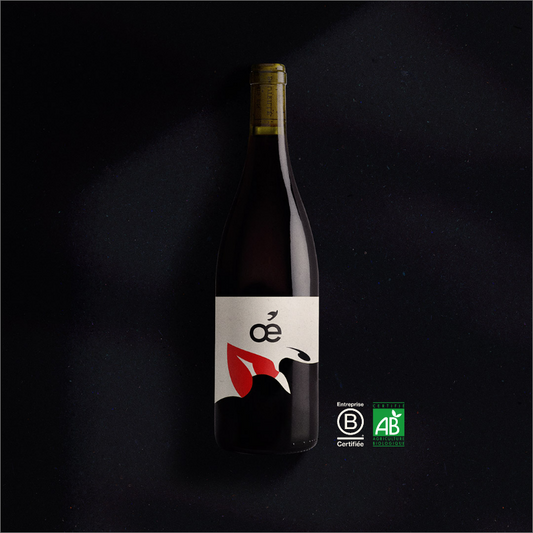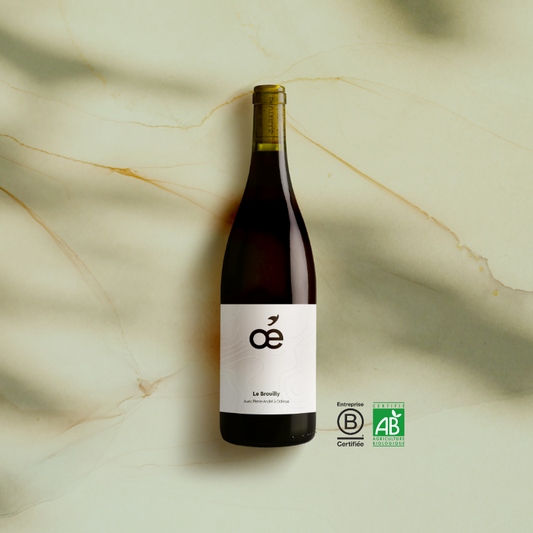We often talk to you about the environment and the commitments we make to help biodiversity. But today, we want to put the individual at the center of the debate.
When we hear “ global warming ”, it is often to talk about the increase in temperatures. But what about the future millions of climate refugees and people left without power due to the latest “most powerful hurricane on record ”.
Rest assured, many people are talking about it and trying to find solutions. For example, the IPCC , which you may be familiar with, is a group of international experts who come together to synthesize the current state of our knowledge on global warming into the famous “ IPCC Report ”.
And since it is not always easy to make the link between all these events, these actors and these figures, we explain everything to you here.
How are the environmental and social crisis linked?
"It is the crisis"
Well, to get you started, we'll spare you yet another definition of global warming, but we'll still remind you of a few basics.
The global environmental crisis brings together 8 crises which are:
- erosion of biological diversity
- ocean degradation
- global warming and climate change
- alteration of biogeochemical cycles (nitrogen, phosphorus, water)
- declining soil quality
- deforestation
- the desertification
- stratospheric ozone depletion (better known as the “hole in the ozone layer”)
It's scary. These 8 crises feed each other. It is a vicious and systemic circle. We cannot imagine solving one crisis and letting another one drag on. You also have to choose your battles. As there is no miracle, or perfect solution, one of the angles that one could take would be that of the human.
While each of these crises has an obvious impact on our blue planet, they above all have an impact on all of us. The erosion of biodiversity makes cultivation and production more complicated. Desertification will make even more arid and dry places which were often already unwelcoming and which will force thousands of people to move. In short, you understood, we didn't leave the inn.
We often talk about the ecosystem and biodiversity as if we were an external member, which does not have to suffer the consequences of its evolution.
And not Roger...
The reason why we are so affected by the effects of our way of life is because we are an essential player in biodiversity and our ecosystem.
The change is when ?
Now that we know all that, why don't we change?
Answer 1: We have no solution
Answer 2: Not seen, not taken
Answer 3: Call a friend
“beep…beep…beep… Hello Lise de Oé, how can we help you? [...] Yes of course. Can you repeat the question please? [...] That is indeed answer 2… Have a nice day! “
And yes, this principle older than the world can also apply to our survival. The human is wired to feel involved only in events to which he binds an emotion . Yet most people have no emotional connection to a factory in China or the flooding of hundreds of homes in India. Be careful, this does not make us soulless beings, incapable of feeling empathy.
Originally, it is a defense mechanism of our brain so that we do not all fall into depression under the daily flood of bad news that we hear.
In other words, most of us distance ourselves from this news to protect ourselves, while for others the consequences are real and sometimes catastrophic.
This is where social ecology comes in . This idea that without a strong link between the two we will not be able to have sustainable development . Here is a beautiful diagram that illustrates it very well:

The first observation of this approach is that the rich, whether they come from a country that is itself rich (or developed) or not, will find a way to replace the lack of a resource with another. As a result, not only will people living in poverty, who already pollute the least (in the broad sense), be the first to suffer from the effects of climate change, but the social inequalities in which they live will only worsen.
The positive point ? The reverse is also true . If we lower the CO2 emissions of the richest, income inequalities will also be reduced because the more wealth is in the hands of a few, the more they will seek to increase it - it's crazy, isn't it?
The second observation is that the effect of certain environmental inequalities occurs with a lag. For example, the day a company dumps its toxic waste into the lake which supplies an entire village with drinking water. This company, whose goal is certainly to make more money for its shareholders/investors will deprive all the inhabitants of the village of the possibilities of increasing their wealth in turn because when you have violent colic, it is difficult to to work, to feed his family, to send his children to school, and so on.
Therefore, in the short term our behavior will cause harm because we support companies, banks, government that encourage polluting projects and aggravate inequalities.
In the medium term , the people most affected will not be able to get out of this vicious circle because they will be sick, unemployed or poorly educated.
In the long term , thousands of people will migrate to the last countries where it will still be possible to get out - presumably the countries that are at the source of their situation in the first place.
What should be remembered? When we consume any food or everyday objects in Europe, we must always take into account that it is a person behind. Whether it's the farmer in the next village who has to feed his cows or the Indonesian employee of a textile factory, we should make the choice to support them. This decision will be the first step in a virtuous circle that will reduce social and environmental inequalities.
The IPCC Report
If all this is still a little vague or you don't know where to start, the IPCC experts have created for you the guide to good practices to avoid reaching this "tipping point". There are even several reading levels. for the more or less seasoned.
If you do not remember exactly the first report released in August 2021, here is a Bon Pote article that will refresh your memory .
As for the second, it is timely because it explains the impacts, adaptation and vulnerability of human and ecological systems in the face of global warming.
As a picture is worth a thousand words, the Bon Pote infographic below will give you at least 250.

I don't know about you, but what we remember is point 10 “ no ecological transition without social justice ” and the impossibility of adapting in the long term if we don't change our habits.
The end of the story is that soon changing things will not even be a possibility because we will have exceeded the limits of adaptations. Imagine that if more than 3 billion people are already living under the yoke of climate change, there will only be more of us when we reach this point of no return.
And following the logic of social-ecology , the greater the magnitude and severity of global warming, the greater the inequalities will be and ultimately this vicious circle will be as well fed as a Christmas feast in Normandy - Norman hole included, yes, yes!
Why is it important for Oé?
Answer in 5 key points:
- As a member of society .
No one should feel excluded from these issues. Neither a person's wealth, origin, power, place of residence, career, influence can save them from the long-term effects of global warming - much to Jeff Bezos' chagrin, we cannot still buy a new planet on Amazon.
- As a business .
As many like to say and think, being part of the problem is also part of the solution. For our part, we choose to be part of the solution by seeking to always go further in our commitments, by being labeled B Corp, by encouraging our community to question and educate themselves on this subject - as with this article by blog :)
- As a company with a mission .
Our mission is to promote sustainable agriculture and a benevolent way of consuming . This commits us to go beyond organic but above all to ensure that we best help the winegrowers with whom we work to have a perennial and sustainable vineyard.
- As an environmental actor.
We sell organic wine, a product of the earth, highly dependent on the weather and the ultimate result of the hard work of mother nature and dedicated winegrowers. If we exist today, it is above all because we believe that it is possible to do good through good . Because we are certain that each pebble - or even dust - piled on top of each other, can become a Himalayan mountain of change.
- As an individual.
As you can imagine, Oé is not the brand that wrote this article. Oé, more than a box, it's a group of individuals with a collective goal - and here, in this case, it's me, Lise, communication and marketing project manager behind the pen . And that is perhaps where Oé's strength lies. Besides, our greatest commonality is not receiving a payslip from the same company at the end of the month, it's our belief that we can have an impact, that things as they are now are mutable and metamorphosable.
For the last word, we are really convinced that if everyone gets together, everything is to be won. We are not doomed, but we must be realistic and start today to no longer ignore the calls for help launched by the ecologists of this world.





